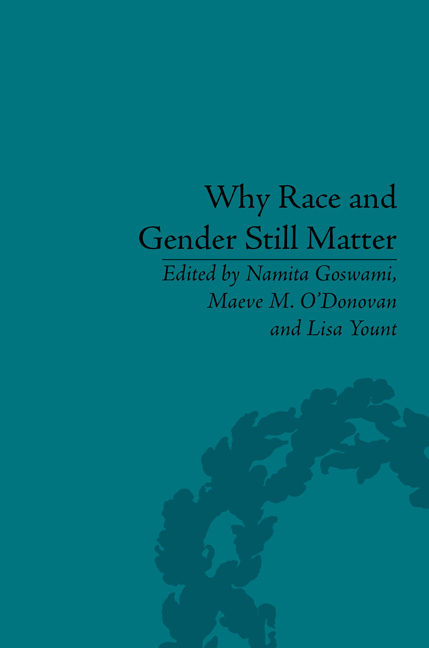Introduction to Why Race and Gender Still Matter: An Intersectional Analysis
Summary
Our anthology is an important contribution to an undertheorized, emerging area of discussion within and surrounding academic philosophy; the anthology supports a conversation that has set its sights on nothing less than transforming the discipline. The very act of publishing a collection such as the present one, a collection that embodies the diversity and intersectional engagement about which it is writing, is important. The contributors are diverse in age, professional status, ethnic background, regional location and area of expertise, and together their voices produce a far richer account of why intersectionality in philosophy matters than any single introductory essay could on its own. Our task in the Introduction, then, is to orient the work of the text and its authors; we do so both by interrogating the general framework of intersectionality - its definition, its history and its reception in the academy - and by arguing that philosophy as an academic discipline benefits from embracing intersectional inquiry. The volume engages intersectionality, first and foremost, as an attempt to disrupt the epistemic closure so easily sustained by tradition. In these pages, philosophy emerges through voices whose soundings must be heard with the kind of theoretical secularism that transgresses disciplinary and topical boundaries. We believe that race and gender still matter – until they don't.
Defining Intersectionality
Generally speaking, intersectionality has been characterized as an awareness, an approach, an analysis, a tool, a strategy, a method and a theory.
Information
- Type
- Chapter
- Information
- Why Race and Gender Still MatterAn Intersectional Approach, pp. 1 - 12Publisher: Pickering & ChattoFirst published in: 2014
